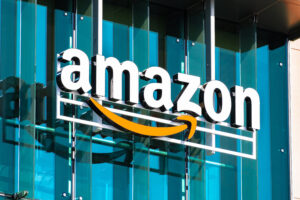The digital services tax has reaped almost £360m from US tech giants including Amazon, Google and Apple in its first year, raising more from most of the digital businesses than they have been paying in UK corporation tax.
A National Audit Office (NAO) report has found the UK’s digital services tax, which was introduced in April 2020 and imposes a 2% charge on the gross revenues made by digital titans running search engines, social media services and online marketplaces, hauled in 30% more than the government had forecast in 2021.
The government, which believes the tax could cumulatively bring in more than £3bn by 2024-25, outperformed its first 2020-2021 annual target of £275m because of the huge online sales boom during the pandemic.
“The digital services tax has succeeded in raising more tax from some big digital companies and has brought in more money than forecast in its first year,” said Gareth Davies, the head of the NAO. He said UK authorities have not identified any firms failing to comply with the new tax, but that “HMRC could still face challenges enforcing compliance, especially among groups without a physical presence in the UK”.
The tax is levied on gross revenues from digital advertising sales, and e-commerce sales companies including Amazon, Apple and eBay make from third party sellers on their sites, but does not capture direct online sales to consumers from retailers such as John Lewis and Tesco.
It is targeted at the largest firms, those with worldwide digital revenues over £500m and with revenues derived from UK users over £25m.
Tech giants such as Amazon, Google and Meta-owned Facebook have historically paid relatively little corporation tax in the UK because they typically ensure their British operations make very little profit, instead funnelling earnings through low-tax jurisdictions such as Luxembourg and Ireland.
The NAO said that overall the 18 businesses that paid the DST, which was first announced in the 2018 budget, had a higher bill than the £351m they collectively paid in UK corporation tax.
“Around 90% of DST collected in 2021-22 comes from just five large business groups,” said Meg Hillier, chair of the committee of public accounts. “HMRC needs to test whether all businesses – not just the low-hanging fruit – are paying their fair share.”
The government has not named any businesses that are liable for DST, however businesses including Amazon, Google, Apple and eBay have publicly acknowledged liability for DST.
The report also found that HMRC has identified many more businesses that could be charged the tax, with a total of 101 being evaluated.
Businesses found to be liable will have to pay the tax retrospectively.
“However, future analysis may be more challenging, as HMRC identifies more business groups that may have different characteristics and attitudes to paying DST,” the report said.
Amazon, Google and Apple say they have passed the 2% tax on to the bills of the third-party businesses and sellers that use their sites.
The DST will only be in place for a few years after the UK government agreed last year to phase it out, averting the threat of retaliatory tariffs on British products from the US.
From 2024, it will be replaced by a new global tax system after the OECD brokered a deal between 136 countries, including the UK, that will result in large multinational companies paying tax in the countries where they do business, and committing themselves to a minimum 15% corporation tax rate.
Read more:
UK’s digital services tax reaps almost £360m from US tech giants in first year
























